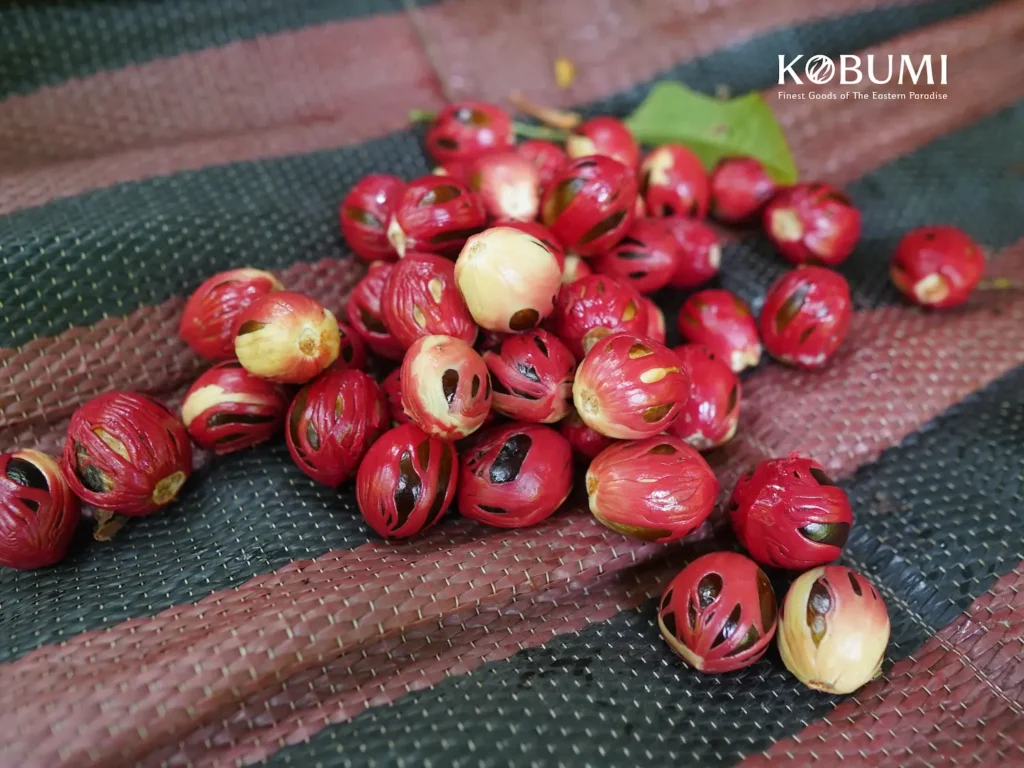Seith Village, one of the leading producers of nutmeg in Central Maluku, is renowned not only for the quality of its spices but also for its customs and traditions, which remain an essential part of daily life. One of the most cherished cultural heritages is Sasi Pala—a customary prohibition on harvesting nutmeg before a mutually agreed-upon time, as a form of respect for nature and its regenerative processes.
The people of Seith do not harvest nutmeg as they please. The process begins with tradition, communal agreements, and a time-tested system passed down through generations. In the context of nutmeg, Sasi plays a crucial role in ensuring the sustainability of the trees and their produce, while also regulating how the harvest is shared and who is entitled to its proceeds.
Sasi Nutmeg Auction: Selling Before Ripeness

Unlike conventional produce trade, in Seith, nutmeg is auctioned while still unripe. This process does not determine who will purchase the nutmeg but who will receive 10% of each farmer’s harvest in their Soa.
Each Soa holds an open auction. Anyone may participate, but only one person per Soa is chosen as the winner. The auction winner receives an official harvest coupon, which is distributed to farmers as a sign that the sasi period is over and harvesting can begin.
“If you win the auction, you hold the coupons. Every farmer must collect one from you before harvesting. After the harvest, they must hand over 10% of their nutmeg yield to you. But it’s a risky move, because the auction happens when the nutmeg is still young,” explained Pak Slamet, a local nutmeg farmer.
Winning the auction does not guarantee profit. The winner must invest a substantial upfront amount—often tens of millions of rupiah per season—which will only be recouped through revenue-sharing from the harvest. Poor yields or bad weather can lead to losses, making the winner’s profit highly dependent on the productivity of their Soa’s farmland.
Sasi Nutmeg Rules and Customary Sanctions
Sasi represents a community-enforced discipline. Anyone caught harvesting without permission faces customary sanctions—from fines to, in severe cases, physical punishment like flogging. However, such measures are only taken with the agreement of the customary council, village authorities, and religious leaders. These sanctions are understood not as violence but as a form of social accountability. For the Seith community, customary justice forms the foundation of order and reverence for nature.
A Tradition that Sustains the Mosque and the Community
Beyond preserving nature and social order, the Sasi system also serves as a source of communal funding. Proceeds from the nutmeg auctions are allocated responsibly to support religious and social initiatives, ranging from mosque construction and public facility repairs to community welfare programs.
“The auction money is handed over to the mosque or managed by it for the benefit of all,” said Pak Slamet.
In this way, the value of spices is not just enjoyed individually but becomes a shared blessing that supports the entire community.
Sasi and Nutmeg: Harmony Between Nature and People
At its core, sasi is a temporary ban on extracting natural resources from a specific area—whether on land or at sea—during a set period agreed upon by the customary and religious leaders. Nutmeg trees cannot be harvested in nutmeg farming until the sasi is officially lifted.
The presence of sasi is marked by symbolic signs, such as palm leaf decorations or wooden stakes in the fields or forests, signifying that the area is “closed.” Yet behind this prohibition lies a deep respect for nature as a shared source of life.
In nutmeg cultivation, sasi ensures the trees are given enough time to bear fruit properly. This preserves crop quality, prevents overharvesting, and secures the long-term sustainability of spice production.
More than a resource management system, Sasi reflects the Maluku philosophy of life, which sees nature not as an object to exploit, but as an integral part of the community to be honoured and protected.
A Local Solution to a Global Issue
Amid environmental degradation and the climate crisis, Sasi is a living example of how Indigenous communities provide local solutions to global challenges. Preserving the Sasi tradition in the context of nutmeg is not just about honouring ancestral culture—it’s a strategic move to enhance Indonesia’s competitive edge in the global spice market, which increasingly values ethical and sustainable practices.
While the world is just beginning to talk about sustainability, the people of Seith have long practised it through their customs, nutmeg, and the generational wisdom they uphold.



